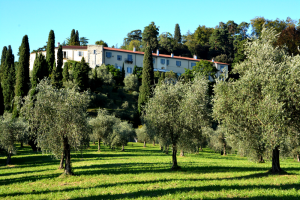The NMC Henderson Prize was created by the NMC in honor of Don Henderson to recognize individuals who have displayed exemplary ongoing passion for teaching, learning, and innovation in higher education, schools, museums, or libraries. Don Henderson is the NMC’s longest serving board member, and his creativity, curiosity, compassion, and deep commitment to education have been evident throughout his service to the NMC, and reflects the values that the Henderson Prize rewards. The winner will be awarded $2,500 to put toward their life’s work of sparking innovation, learning, and creativity.
As his colleague, Pulitzer Prize winning photographer Bill Frakes noted, “Don brings incredible intelligence, energy, and zest along with total curiosity and openness to everything he does.”
“As one of the world’s top education organizations, any recognition from NMC is special, but when it’s a prize named for the hugely inspiring Don Henderson, it is a seriously big deal,” shared former winner Jonathan Nalder. “The NMC community is chock full of innovators and leaders, and winning this award super-charged my belief in myself and what I could achieve next — as well as doubling-down on the love I feel for my NMC tribe.”
How to Enter, Policies, and Eligibility
Nominating an Outstanding Educator
Submit an online entry at the form included on this web page with your nomination. You are welcome to nominate yourself or another exemplary individual. Please consult our policies, below, before submitting your nomination by May 19, 2017.
Policies
- There is a limit of one entry submitted by the same individual.
- By submitting a nomination for the NMC Henderson Prize, individuals are granting permission for the NMC to use promotional images or excerpts from the submissions provided by the entrants to showcase entries on NMC’s website, social media, professional development programs, and for archival purposes.
- The competition is not responsible for incomplete submissions.
- You are not required to be a NMC member to submit a nomination or be considered for the prize.
Eligibility
Individuals are eligible to submit self-nominations or to nominate another educator. We will not accept submissions for nominees that have won the NMC Henderson Prize in the past. (Previous winners can be found here.)
Criteria
The NMC Henderson Prize recognizes those who have displayed exemplary ongoing passion for teaching, learning, and innovation in higher education, schools, museums, or libraries. The nominators and others involved in the selection process remain anonymous as a core principle of the program. They are chosen from individuals identified in the greater NMC community, and represent a considerable diversity of knowledge.
The NMC Henderson Prize winner should represent the very best of the community of innovators that is the NMC, and should exemplify the vision that brings us all together. This criteria and success for the award will be evidenced by:
Creativity
Known for individual curiosity and promoting experimentation among others
Commitment/Passion
Exemplary dedication to innovation in teaching and learning
Diversity of Knowledge
Demonstrated broad depth of knowledge about thoughtful application of technology in learning environments
Accomplishments
Distinguished track record of achievements
Vision
Forward-thinking, ahead of the game, and/or innovator status of a new pedagogical integration of technology
Nominations are due by May 19, 2017.








